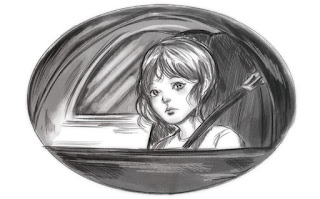What Might Ann Landers Say About
Amazon’s Kindle Lending Program
By Carolyn Howard-Johnson
I often use a “Q&A a la Ann Landers” format for my SharingwithWriters newsletter. I became a regular reader of her columns when I started my first job in journalism and part of my duties were to make her column fit the “society page” layout. In other words, it was an edit-to-fit task. No way would I interfere with her copy! Gasp! I cringed every time I had to delete something, but I learned much from her—about life and about editing! I am still hearing from readers of my books who don’t quite understand how the concept of borrowing a book benefits their marketing campaign.
QUESTION:
How do you feel about the free borrowing feature offered by Amazon to their Prime members for their Kindle books?
ANSWER:
I don't think any of us would have objected to library lending back in the days before Kindle. Yes, there are some differences—not least of which is that libraries bought the books they lent. But benefits of lending programs still exist—whether we’re talking library or Kindle's lending or online Peek-Inside features.
Here are some of them:
∙ Libraries buy books for their shelves, too. An e-book that does well in a library may also be considered for their system wide purchases. That can be quite a Ka-Ching for books so chosen by large library systems. Sometimes 50 books or more. Online entities logarithms might reward oft-read books with more exposure.
∙ Amazon provides a stipend from their huge KDP Select global Fund when customers read their books from the Kindle Unlimited and Kindle Owners’ Lending Library. It’s based on how many pages the reader actually turns (or reads). Amazon announce the amount to money that goes into that fun regularly.
∙ Loaned books allow people who can’t afford a book (or won’t spend the money) to read them. Most authors want their books read. Great readership can create sales greater momentum in a still wider world of readers.
∙ The same concept applies to readership in general—purchased, lent, or borrowed—that will likely increase the buzz about a book which results in more sales.
∙ Activity on book lending gets noticed by Amazon’s algorithms. The more action you have on you Amazon account, the more likely Amazon’s logarithms will be to peg your book for additional exposure.
There is another big advantage. If your book is available to borrow on Amazon's Prime program, reviewers are often just as happy accessing your book that way instead of having you send a hardcopy to them. That's saves time and money for the author or publisher. In fact, that is one of the tips I give in one of the books in my #HowToDoItFrugally Series of books for writers. It is How to Get Great Book Reviews Frugally and Ethically.
One last thing: Borrowing of any kind over paper that also must be shipped minimizes your carbon footprint. That’s important for authors who are also greenies.
More About Today's Author:
Carolyn Howard-Johnson brings her experience as a publicist, journalist, marketer, and retailer to the advice she gives in her HowToDoIhttps://howtodoitfrugally.com/tFrugally series of books for writers and the many classes she taught for nearly a decade as instructor for UCLA Extension’s world-renown Writers’ Program. The books in her HowToDoItFrugally Series of books for writers have won multiple awards.
Howard-Johnson is the recipient of the California Legislature’s Woman of the Year in Arts and Entertainment Award, and her community’s Character and Ethics award for her work promoting tolerance with her writing. She was also named to Pasadena Weekly’s list of “Fourteen San Gabriel Valley women who make life happen” and was given her community’s Diamond Award for Achievement in the Arts.
The author loves to travel. She has visited nearly 100 countries and has studied writing at Cambridge University in the United Kingdom; Herzen University in St. Petersburg, Russia; and Charles University, Prague. She admits to carrying a pen and journal wherever she goes. Her Web site is https://howtodoitfrugally.com.
PS: The typewriter featured in this article is the very one Carolyn used for personal projects back in the day she was trimming Ann Landers' columns to fit what people then called the "Society" page of the newspaper she worked for.




.jpg)
.JPG)




